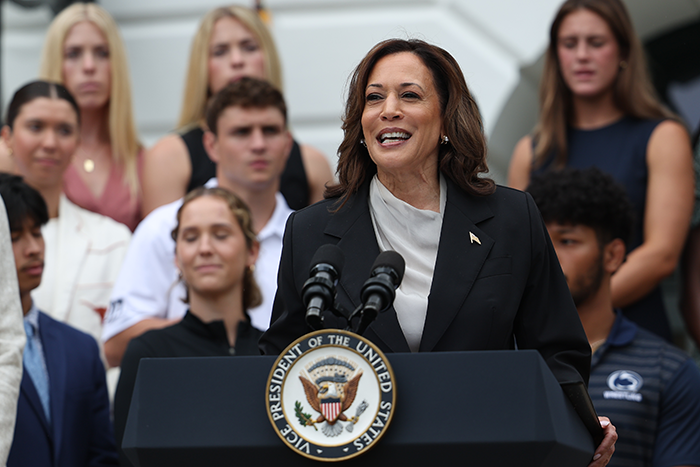New York Correspondences
23 July 2024
Kamala Harris: The Outcome Is Far from Certain

It is no secret in Washington that Joe Biden, after clinging to his candidacy like a limpet to a rock, negotiated his withdrawal from the race for the White House with little dignity. That is to say, he agreed to step aside and support Kamala Harris in exchange for a guarantee that no one would force him out of the Oval Office before January.
The 46th President of the United States, who had promised not to run for a second term, should never have been encouraged by the Democratic Party to contest the primaries in the first place. We are, after all, talking about a man who, already some years ago, introduced his granddaughter on live television as his son Beau, who had been dead for quite some time. In a healthy democracy, Joe Biden should simply no longer be in office.
Unfortunately, the American republic is unwell. That too is an open secret. There is something Brezhnev-like about Biden, given his state of health. But even more so, something of Yeltsin, when one considers his entourage, which has clung to power and isolated him from political reality for over a year.
But all that is now behind us, and the show must go on.
Kamala Harris has all the qualities required to be president. Whether as senator or as Attorney General of California, she has demonstrated on multiple occasions exemplary tenacity and courage, as well as a genuine political instinct—qualities not so common within the Washington establishment. Today, she appears to be uniting support around her. Even if somewhat reluctantly, the leading figures of the Democratic Party have largely rallied to her side. Most of her major potential rivals—Gavin Newsom and Josh Shapiro, governors of California and Pennsylvania respectively—have announced they will not run… The stars thus appear to be aligning. Delegates will likely formalise their support in early August, and the Democratic National Convention in Chicago shortly thereafter should be a mere formality. The bloodbath of a fratricidal war between Democrats, which would have been disastrous, will have been avoided. And to those grumblers who claim that Harris will have no legitimacy as nominee because she was not selected through a proper contest, one need only reply that she won the primaries alongside Joe Biden.
The problem lies elsewhere. It concerns the perception that the American public, for the most part, has of her and her record over the past four years.
Biden and his close circle never truly embraced Harris. Her fierce—and often justified—attacks on the former Vice-President of Barack Obama during the 2020 primaries left deep scars. Since then, Biden has never quite forgiven himself for bowing to pressure from those who urged him to pick the Californian lawmaker as his running mate. The unspoken strategy has long been to make “the one who was chosen only because she belonged to minorities” pay for it by keeping her at arm’s length from decision-making and sidelining her as much as possible in domestic politics—hence the unfair perception of amateurism that clings to her. One might almost think we had returned to the days when a jealous John F. Kennedy marginalised his vice-president Lyndon B. Johnson, who would nevertheless become the last great American president—at least in terms of domestic policy.
Harris’s effective handling of the health crisis from January 2021, her successes in fighting climate change on the home front, and her central role in infrastructure and social policy negotiations have gone largely unnoticed. What remains is the failure of Biden’s immigration policy, for which she has been unfairly blamed, having been involved but without decision-making power.
The first challenge for the Democratic Party’s almost-certain candidate in November’s election will thus be to show herself for who she truly is: a woman of talent and stature. And given the lack of genuine enthusiasm from many of her fellow Democrats, as well as the firepower of the Republicans, it is by no means a foregone conclusion.
Between some of her “friends” who have already written off the upcoming election and are preparing for 2028, and opponents willing to do anything to return to power, Kamala Harris will have to wage not only the shortest campaign in recent U.S. history, but also the most difficult.
Romuald Sciora is Director of the Political and Geostrategic Observatory of the United States at IRIS, where he is an Associate Research Fellow. A Franco-American essayist and political scientist, he is the author of numerous books, articles, and documentaries, and is a regular contributor to international media outlets commenting on current affairs. He lives in New York.

